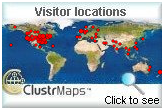Saturday, August 27, 2011
What Do We Want Our Students to Know, Be Able to Do, or Have Experienced?
I recently reread Neil Postman's Amusing Ourselves to Death. His major complaint is that TV has ended (or is in the process of ending) the Era of Exposition which he defines in this way: "Arguments, hypotheses, discussions, reasons, refutations or any of the traditional instruments of reasoned discourse..." (p. 148, 20th Anniversary Edition, Amusing Ourselves to Death.). He bemoans this change because he feels that the major traits of an educated person will be replaced with amusements. He goes on to contend that classrooms have been converted from educational centers into "a place where both teaching and learning are intended to be vastly amusing activities." (p. 148)
This led me to think about what I want my students to know, be able to do and have experienced. (I will have more to say later on the amusement portion of Postman's view of what has happened to education.) I think most desired outcomes for education can be found in these three categories. Some may question experiences. I respond that some learning activities have objectives which cannot be measured or evaluated immediately (such as art appreciation) require us to content ourselves with a set of experiences, especially when we have reason to believe that those experiences will lead to the outcomes at some point in time when we can evaluate their effectiveness. This deserves more discussion which i will reserve for a later post.
Back to my list. I will start with Do since I think that is the most important list.
1. Be able to write. I tell my students they must meet Mrs. Yollis' 3rd grade standards for grammar, spelling and capitalization. And they also must be able to effectively argue a position and be an effective peer reviewer.
2. Be able to read. Yes, we can now listen to most written works. And I listen to a lot of material that is also in print form. But listening is now enough. I want my students to know how to read. And I would that add I want them to want to read. I guess I need a values category for my objective.
3. be able to find information using the most effective tools available. We are nearing the time when "all information will be available at all times in all places." (Guttenberg II)
4. Be able to assess and validate the credibility of information.
5. Be able to apply the scientific method in his or her scholarly activities. More precisely
a. Be able to Ask Questions
b. Be able to Observe
c. be Able to Describe
d. be able to Compare
e. Be able to Contrast
f. be able to Categorize
g. be able to Analyze
h. be able to Hypothesize
i. Be able to Ask Questions
Now the Know:
I have no absolutes here. It all depends. More important are points 3 and 4 in the list of skills above.
And the "Have Experienced" list?
1. Have engaged in developing and maintaining a personal Learning Network or PLN. Why? Because the sources of our intellectual support are critical for a successful career and life.
Nothing we have to know? Well, we have to know a lot. But there is no universal list unless it is our name, address and phone number.
But what do we test for in school? In most cases what is known. And that seems to me to be a fatal flaw in our educational system.
Needed to complete this discussion are the levels or standards to be attained in the skills identified above as well as ways for evaluating them. But the points I wish to make here are two:
1. We do not articulate clearly the learning outcomes or objectives that we wish to address.
2. If what we test for defines those objectives for us, which it indeed does, then we are not focusing our efforts as educators where we should be!
Subscribe to:
Post Comments (Atom)




I think that having certain criteria for your students is absolutely essential. If the students cannot write properly by a certain age, or they cannot read a sentence, that is not acceptable. Students have to learn how to think for themselves as well. When you mentioned the scientific method, that to me, is the beginning of how to think for themselves. Hypotesizing, asking questions, and analyzing are the three most important skills a student needs. That is opening their mind and allowing them to grow as not only a student, but as an adult in the "real world".
ReplyDeleteYou may not need to know how to use Pythagoran's Theorem in everyday life, but everyone must know how to question and analyze certain things that come up.
A lot like EDM310
ReplyDelete